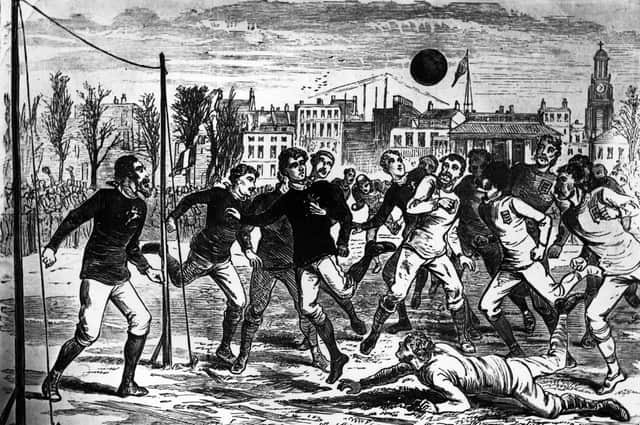Scotland in the Union: By nurturing civic society we can strengthen the bonds that keep the UK together – Ed McGuinness


Yet many of the social, cultural and economic bonds we share have been shaped over millennia by common values. Now a new pan-UK think-tank, the British Civic Institute, has been created to find practical ways to help repair them.
The BCI believes the third sector is key to showing the way. Across the UK, charities are part of the social DNA we share as people who, time and again throughout history, have shown readiness to help good causes and support those in need.
Advertisement
Hide AdAdvertisement
Hide AdSince St Augustine founded the King’s School in the sixth century, creating perhaps the UK’s first charity, a culture of charity and civic society has been interwoven in what it means to be British.
Of course, civic society is more than charity. It’s about community too. Whilst charities often have supporting the most vulnerable as a core purpose, civic society is also about bringing people together as social beings.
From Scottish football teams whose roots lay in Victorian industrial communities to musical groups that began in pre-war industrial heartlands like south Wales, our cultures are heavily shaped by past associations that still resonate.
Whilst we rely on government for many essential services, the sense of community takes tangible form in our charitable, cultural and sporting pursuits. The institutions that sustain them are foundational for what it means to be British.
Indeed, counter to some narratives, our Union is more than just a transactional relationship whereby value is measured on fiscal flows determined by the Barnett formula. We are, uniquely, a family of nations and also one nation linked by culture, history and identity. A family, at its core, is not transactional but exists to help its most vulnerable.
So, there’s room for hope. Whilst some politicians seek to strengthen or disrupt our Union on a top-down level, the strength of civic society remains steadfast.
For some, British society is manifested most clearly in the sorts of values which tend to shine clearest in times of difficulty such as the pandemic, when common traits like integrity, pride and stoicism saw many through an exceptionally dark period. Others define it by our institutions, religious, governmental or ceremonial. But the most visible manifestation of the UK is the community we have created.
The BCI’s aim is to consider how these facets of civil society can be harnessed, strengthened and leveraged to enhance society. At an event at Holyrood, we evaluated how, by enhancing the educational efforts amongst the young people of Scotland, England, Wales and Northern Ireland, we can supercharge their futures.
Advertisement
Hide AdAdvertisement
Hide AdNext, we will study the role of community groups in forging a sense of ownership in society and how government can support them, or how lessons learned from civic organisations’ success can enhance government.
A sense of community is ingrained in our culture and our commitment to fellow human beings; a validation of what it means to be part of modern Britain at its best, providing a sense of ownership in a shared society.
The Union’s future remains bright if we put our shared will to the task of nurturing the civic society that keeps us together.
Ed McGuinness is director of the British Civic Institute
Comments
Want to join the conversation? Please or to comment on this article.
